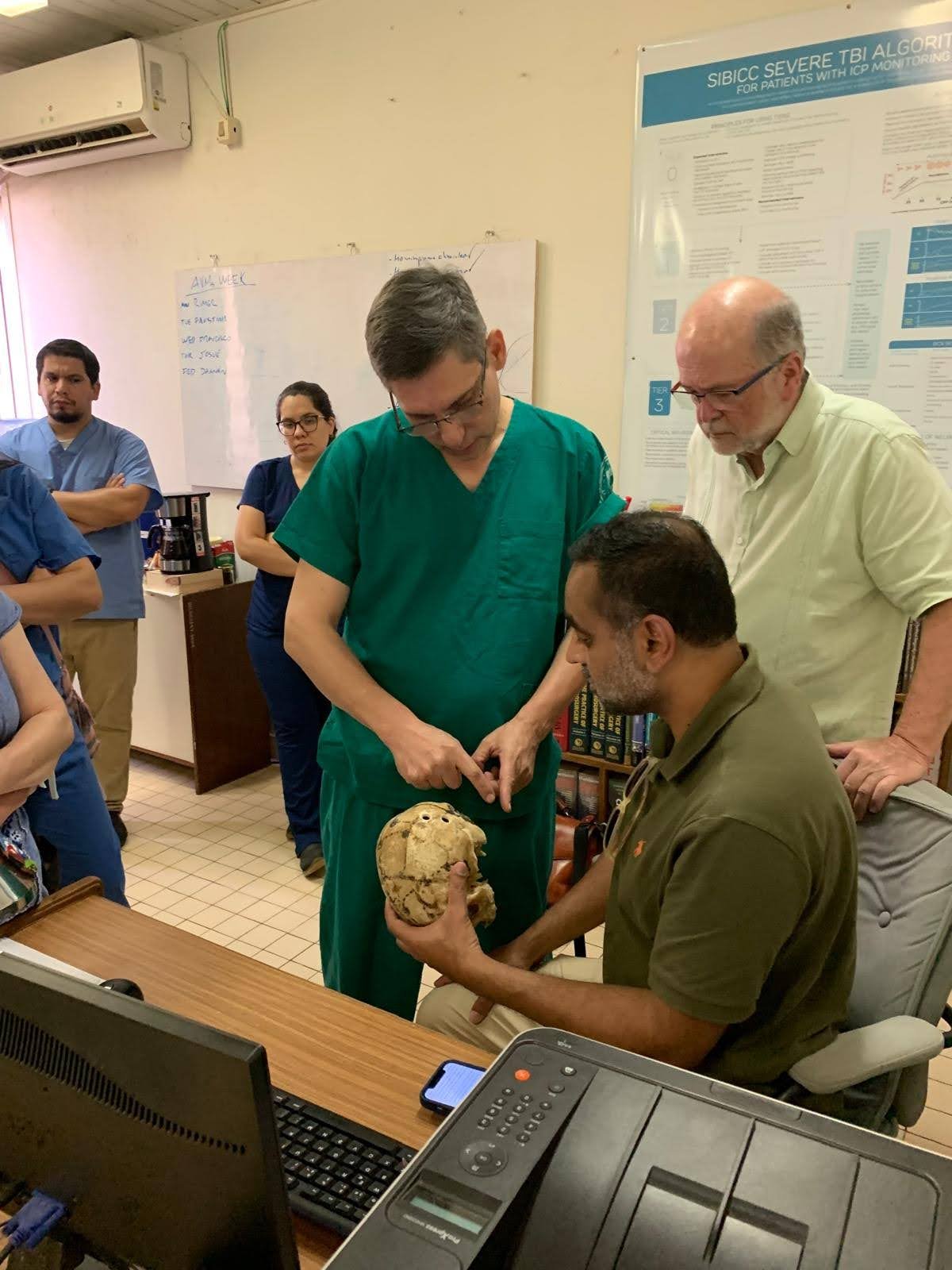“I was hopeless” is a phrase you frequently encounter when speaking with parents of children with drug-resistant epilepsy. It serves as a powerful reminder of the vital role that Solidarity Bridge plays in sustaining hope for those whose hope has run thin. Along with committed partners, Solidarity Bridge is restoring hope for Bolivian children suffering drug resistant epileptic seizure disorders by making epilepsy surgery accessible.
Read MoreAt 53, Margarita is a woman who has faced more challenges than most people do in a lifetime. When I first met her, she was overwhelmed by debilitating headaches and near blindness. About 18 months earlier, her symptoms had started with headaches and subtle vision problems. But at the time, she and her family thought it was all tied to the devastating loss of her husband of more than 30 years. The grief of losing him had consumed her, and no one could have imagined that something else might be wrong.
Read MoreFred Rogers, TV’s beloved Mr. Rogers, used to say that when there is a crisis, look for the helpers. During our week in Vinto, Bolivia, as part of Solidarity Bridge’s Multi-Specialty Mission Team, we never had to look far to find helpers.
Read MoreToo often, we overlook the fact that there is not only an economic barrier preventing patients from receiving care but also a time barrier. In many cases, the ability to take time off to heal is a luxury. Many patients put off life-saving surgery because they can’t afford to take time off. This is why our general surgery program has placed a strong emphasis on training local doctors and residents in laparoscopic surgery, as well as donating laparoscopic equipment and supplies.
Read MoreBolivian representatives from the Santa Barbara Hospital spent a week in Honduras to observe a range of rehabilitation training and care methods for neuro trauma patients at Teleton Honduras. This South-South exchange facilitated the sharing of expertise and collaboration to solve healthcare challenges.
Read MoreIt was a tremendous honor for Solidarity Bridge’s Neurosurgery & Neurology Institute (NNI) to be invited to celebrate the 50th anniversary of the Bolivian Society of Neurosurgery (BSN) and participate in its XXII Congress, in La Paz, Bolivia during their visit at the end of August.
Read MoreIn a groundbreaking collaboration with Solidarity Bridge this fall, the University of Wisconsin-Madison's Department of Neurological Surgery will welcome the first Bolivian neurosurgeons as part of a one-month observership program.
Read MoreSurgery Residents during previous on-site training course held in March of 2024, focusing on spinal surgery.
Read MoreA Bolivian nursing student needed highly-specialized brain surgery unavailable in the public healthcare system in his country. Read about his international journey to care and healing.
Read More“Successful surgical training is not dependent on the equipment, the finances, or even the planning as much as on the dedication of the people and their motivations for being here.”
Read MoreAmid our long-term goals and strategies, the day-to-day work of Solidarity Bridge always comes back to serving the needs of the patient in front of us. Each brings a unique story, and it is a gift to be invited to be a part of it. For both our patients and ourselves, these encounters can be fraught with heartache, but are also a source of great joy
Read MoreBolivian doctors interested in pursuing sub-specialized training such as oncological surgery have very limited training options in-country. Our mission trip offers an opportunity for these doctors to operate alongside a surgeon who has performed thousands of the most difficult pancreatic and hepatobiliary surgical procedures.
Read MoreFrom virtual lectures to hands-on practice, our two day Spinal Surgery Workshop gave more than 25 neurosurgical residents from Bolivia and Paraguay an opportunity to advance their skills.
Read MoreJosé was the first of six patients with complex neurosurgical conditions operated this week at the Santa Bárbara Hospital in Sucre, Bolivia. These surgeries are part of a long-term effort drawing on the contributions of local and U.S. neurosurgeons, neuro-anesthesiologists, neuro-intensivists, and neuro-rehabilitation specialists toward a vision of establishing the Santa Bárbara Hospital as a premier neurotrauma center.
Read MoreEndoscopic transnasal surgery uses a tiny camera through the nose to remove tumors from the pituitary gland and skull base. U.S. neurosurgeon Richard Moser and Bolivian ENT Patricia Arteaga delivered a comprehensive course for 11 doctors eager to learn the technique.
Read More














